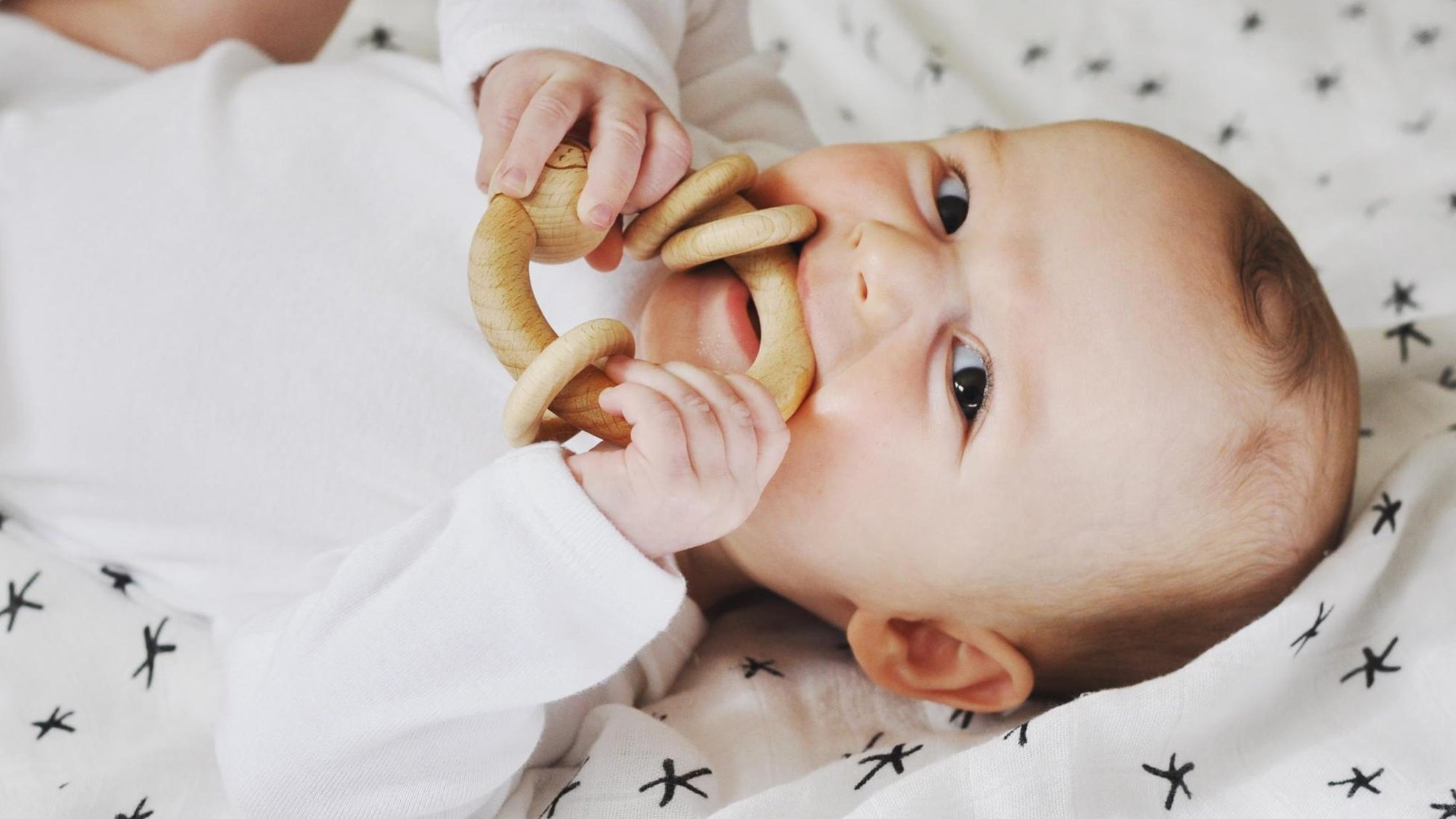
In this article
You’re finally getting into a groove when it comes to breastfeeding your baby: You’re feeling good about making it this far, feeding times are much more manageable, and you’re totally pulling off the whole nursing-in-public thing too.
You’re finally feeling great about your breastfeeding journey, so it would only make sense that everything should change overnight, right? Enter teething. The introduction of tiny teeth into nursing can be a whole new ballgame, so here’s what you can do when you’re breastfeeding and your baby starts teething.
Do you have to stop breastfeeding when your baby starts teething?

Short answer: Nope. The American Academy of Pediatrics (AAP) recommends breastfeeding through the first year of life, the World Health Organization recommends two years or more of nursing, and the American Dental Association (ADA) also confirms that there is no medical reason to stop breastfeeding when your baby starts teething.
Your baby will most likely start teething somewhere around the time that she is 6 months old, although some babies will start earlier and some may start later. Sometime around the 6-month mark, your baby will naturally start nursing a little less and become interested in more solid foods. Your baby still needs breast milk, though. Although it might be an uncomfortable learning curve initially, as your little one learns to nurse with teeth, eventually, both of you will adjust and continue breastfeeding without discomfort. However, every baby and mother are different, and even if there is no medical reason to stop nursing through teething, only you can make the decision on when your breastfeeding journey will end.
One small adjustment you will have to make through breastfeeding and teething is that as soon as your baby has teeth that have erupted through the gums, the ADA does recommend that you start brushing them immediately. Basically, once you can see teeth, it’s time to start brushing. Even breast milk can hang around those new teeth and open gums, and might even lead to cavities, so it’s a good idea to start healthy dental habits early on.
Are there any benefits to breastfeeding through teething?

It might seem like if your baby has teeth, that it should be natural for your breastfeeding journey to come to an end. But even if those first few teeth are coming in, your baby can still benefit greatly from breastfeeding up to and through the first year of life.
The good news is that if you’re breastfeeding, the ADA reports that babies who are exclusively breastfed for the first six months of their life are less likely to have teeth alignment issues, including open biting, crossbites, and overbites. So, although it might not feel like it at the moment, the discomfort you might experience while your little one battles through teething and nursing might just pay off in the long run.
Tips for breastfeeding and teething

If you do decide to continue your breastfeeding journey through your baby’s teething process — which will continue over the course of several months, once it begins — here are some tips to make the transition easier on the both of you:
- Realize that your baby “biting” you is normal and not purposeful. Is it shocking the first time it happens? Yup. Does it hurt? Of course. Does it mean your baby is out for blood? Um, no. Your little one is learning to nurse with those new pearly whites too, so don’t panic just yet.
- Gently redirect your baby. You can help your little one learn that biting is a no-no by gently redirecting them when they bite down on you while nursing. Remove her from the breast, talk to her with gentle instruction, or make it clear that the biting hurt you. Babies are excellent at reading your facial expressions, tone, and words. They can understand that biting is not cool.
- Offer comfort aids. The AAP recommends using plastic or rubber toys (no teething jewelry) or freezing wet washcloths to offer to your baby to chew on and ease the discomfort of teething. The AAP does not recommend teething gels and suggests speaking to your pediatrician before giving any medicine, such as Tylenol, for teething discomfort.




